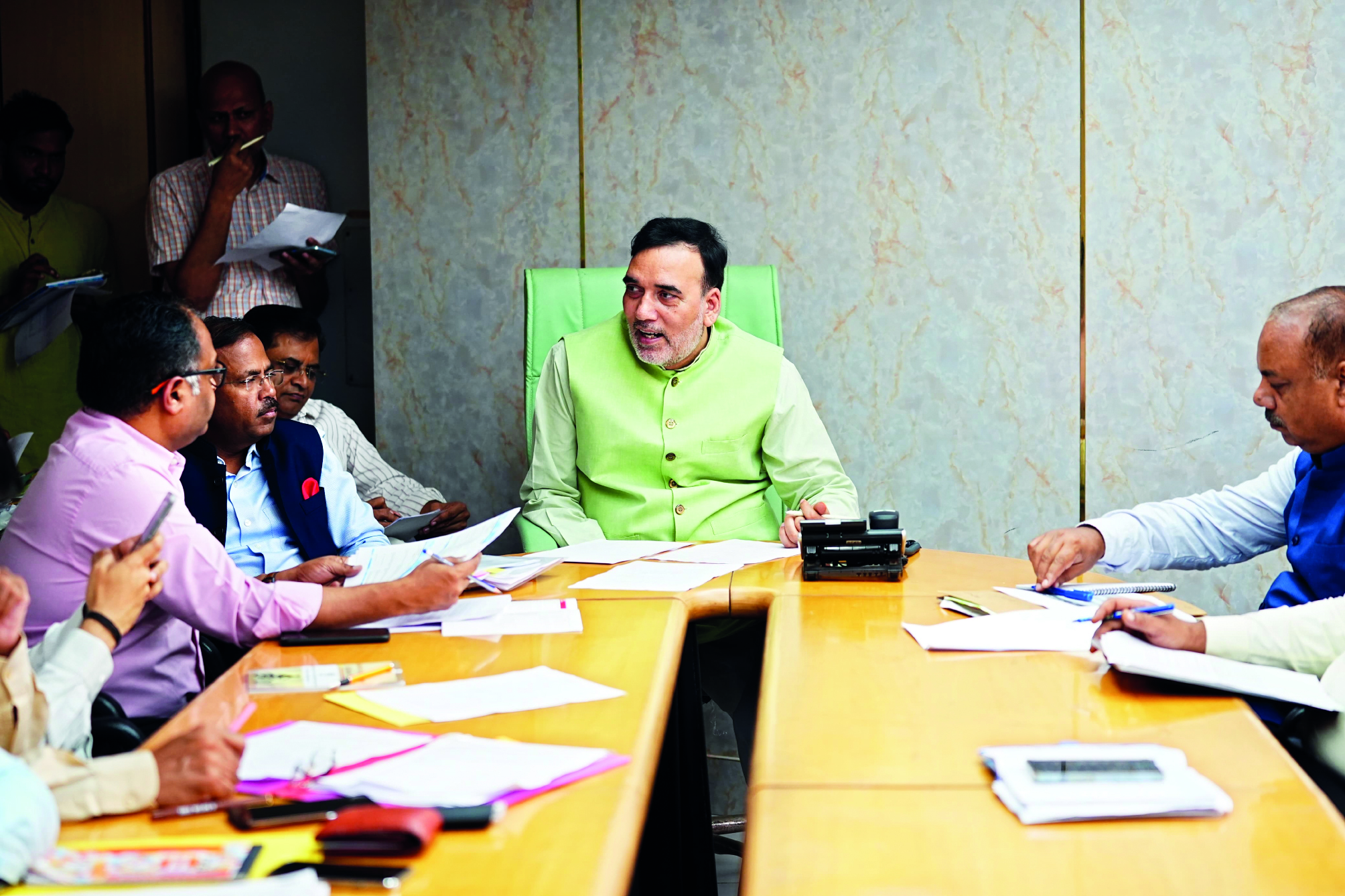Pollution levels soar: More Metro trips, 6,200 addl staff at hotspots...

New Delhi: As air quality in the national Capital continues to deteriorate, the Delhi government has announced a series of proactive measures aimed at tackling the escalating pollution levels. Environment minister Gopal Rai convened a meeting with key departments to implement stricter protocols under the Graded Response Action Plan (GRAP), emphasising the urgent need for collective action from neighbouring states.
In his address, Rai highlighted the alarming increase in pollution levels, particularly as seasonal weather changes take effect. “Pollution levels are on the rise in the Capital, coinciding with the seasonal weather changes. This trend isn’t confined to Delhi alone, it affects the entire northern region of India,” he noted, attributing a significant portion of the pollution to vehicular emissions from neighbouring states.
To address the issue, the AAP government will enhance water sprinkling efforts across pollution hotspots and deploy 6,200 additional sanitation workers from the Municipal Corporation of Delhi (MCD) to clean roads. “In today’s meeting, it was decided that to implement the first rule of GRAP stage 2, water sprinkling will be increased to control road dust pollution,” Rai explained. Dust suppressants will be mixed with the water used for sprinkling at these sites, with operations set to begin on the 25th of this month. Rai also announced the deployment of 1,800 traffic police officers to manage congestion at 97 identified points, reinforcing the need for smooth traffic flow in crowded areas. Inspections at construction and demolition sites will be intensified, with teams tasked to inspect at least two sites daily and report findings to a central monitoring unit. Recognising the critical role of public transport, the government plans to increase the frequency of Metro and CNG and electric bus services. “Metro services will increase by 40 additional trips from tomorrow, and DTC buses will reduce their intervals to further encourage public transport usage,” said Rai. In an effort to discourage private transportation, the government has directed municipal bodies to explore raising parking charges. In light of the upcoming winter season, which typically sees a spike in air pollution, Rai has reached out to transport ministers from neighbouring states, including Haryana, Uttar Pradesh, and Rajasthan, urging them to halt the entry of diesel buses into Delhi. “The impact of diesel emissions on air quality is well established. This additional burden from interstate traffic is aggravating the situation,” he stated in a letter, requesting stricter regulations on diesel emissions and a transition to CNG or electric buses.
Rai emphasised the need for collaboration among states, asserting, “We have observed that certain areas, especially Anand Vihar, experience AQI levels of around 400 when Delhi’s overall AQI is 300. Buses from neighbouring states significantly contribute to pollution levels in these areas.” He expressed hope that neighbouring BJP-ruled states would respond positively to the request for cooperation in improving air quality. Additionally, the GRAP stage 2 mandates that Resident Welfare Associations provide heaters for guards and night-duty workers to mitigate the impact of biomass burning during winter.
Meanwhile, city doctors reported a 30 per cent surge in respiratory diseases like asthma and chronic obstructive pulmonary diseases. With agency inputs



